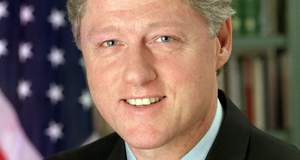Limiting Values of Democracy and Competing Views on Materialism in American Society: Comparing Kirk and Nedelsky
By
2012, Vol. 4 No. 09 | pg. 1/2 | » Limits lie at the heart of the American political system. No governmental body or figure has unlimited authority—all are checked by the others. However, beyond this, political thinkers are divided over how best to mitigate majoritarian influence in American society—to constrain the power of “the people” from encroaching on the rights of individuals. Two such scholars, Jennifer Nedelsky and Russell Kirk, agree that laws and institutions by themselves are insufficient to check the power of America’s democracy, and that American society needs (and has) “limiting values” to restrain both the majority’s ability and its desire to exert tyrannical influence (Nedelsky 1988: 246).1 However, the values they prescribe to this end are starkly different; Nedelsky emphasizes property’s suitability for such a function, but Kirk argues that limited government requires shared moral values. Correspondingly, their prescriptions for ensuring continued limits on majority rule differ: Nedelsky argues for a radical redefinition of property, whereas Kirk stresses the need to maintain traditional American moral principles. Ultimately, their divergent prescriptions result from their contrasting views on the importance of material goods in Americans’ minds—and whether materialism helps contain or merely unleashes America’s majoritarian democracy. In Nedelsky’s mind, the possibility that a majority will infringe upon the rights of individual citizens is ever-present. "The continuing tension,” she writes, “between democracy and individual rights as limits on government, is the most important and best characteristic of the American Constitution" (1988: 246). These limits are given form in what Nedelsky refers to as “limiting values”—common principles that define the bounds of majoritarian authority (1988: 246). General acceptance of a limiting value is a guarantee that the ruling majority government will have a finite reach, and that individuals will have rights safe from “democratic attack” (1988: 247). However, for a desired right to truly act as a limiting value, it must have a “special nature” (1988: 251). A limiting value not only holds legal sway but also wields significant power in the minds of the people—it necessarily has sufficient “moral force” to dissuade even the most “encroaching” majorities from violating the value’s authority (1988: 252). Nedelsky claims that property has acted as that limiting value throughout American history. It is “the perfect candidate for such a value,” she argues, because of its “concrete quality”—its material nature (1988: 269). Property’s powerful, “mythic quality,” which Nedelsky goes so far as to call its “sacred” reputation as a limiting value, springs directly from this tangibility—the claim that “‘government can’t take what’s mine’” (1988: 244, 252, 263). She sees Americans as fundamentally materialistic—she asserts that it is this “experience of security” and the “special hold” it has had in American consciousness that has made it an effective limiting value (1988: 264-265). Property, by virtue of its material nature, is in Nedelsky’s view the defining limiting value in American democracy.Property’s legal force as a limiting value has historically found expression through the decisions of the courts. By establishing the power of judicial review, Nedelsky argues, the Supreme Court “asserted their power to protect individual rights from democratic attack” (1988: 247). Through judicial review, the Court delineated its sphere of authority: to determine the constitutionality of majority legislative decisions, which includes “preventing legislative interference with property rights” (1988: 247). The Court has enforced this authority by “strictly limiting” the circumstances in which the government can interfere with property—namely, by restricting such seizures to situations in which the private property will be made available for “public use” (1988: 248). However, Nedelsky argues that since 1937 the Court has ceased to fulfill its function as the guarantor of property rights against majority claims. When governments use the defense of eminent domain, the courts rarely overturn their claims on private property. Moreover, the courts no longer permit “takings” of private property solely on the basis of public use. Instead, the courts have claimed that situations in which the taking will produce a “public benefit” are also permissible (1988: 248). Nedelsky points to an example in which the government seized an entire neighborhood for General Motors’ use. There, the Michigan Supreme Court upheld a decision not to transfer property from private to public ownership, but from multiple private owners to another (1988: 248-249). “One is struck by the implicit transformation of property’s place in our constitutional system,” she notes, for the question is no longer “whether or when a government has exceeded its legitimate authority,” but how to rationally compensate those who lose their property. Thus, according to Nedelsky, property no longer serves as a limit on democratic power, but rather as a way for the democracy to determine what is in the best interest of the majority—a radical shift from property’s traditional function as a limit on the influence of that majority (1988: 249-250). Since the courts are “the guarantors and mediators of the basic tension of the system [of property rights]," their disregard of property rights as limits to majority legislatures would seem to be perhaps the most alarming indicator that individual and minority rights could be in danger (1988: 247). Nevertheless, even though the Supreme Court does not treat property as a “sacred right” and as a true limiting value, Nedelsky questions whether either the judicial system or our democracy have ever faithfully respected property as a boundary between government power and private rights. “There has always been a striking gap between rhetoric and legal reality,” she writes (1988: 271). Indeed, in the sixty years after the creation of judicial review, property entered into a period of turbulence in which its meaning continuously shifted, and “property was, in effect, neither stable, nor sacred, nor a barrier to governmental authority” (1988: 262-263). This casts serious doubt on the idea of property as a true boundary to the claims of the democracy. The seeming latter-day erosion of property’s legal force is consistent with property’s historical role, as the courts’ have often proved inconsistent in enforcing property rights as limiting values. Thus, property may never have actually served as a steady restriction on majoritarian legislative interference with citizens’ private rights. But the true importance of property, Nedelsky argues, does not lie in the courts’ legal enforcement of property rights as a “barrier” to government “takings,” but in its truly mythic quality: “It is not in the intrinsic nature of legal rights to property or the actual practice of their protection [emphasis added],” she writes, where property’s virtue as a limiting value can be found. Rather, it is “the special hold which the concept of property seems to have on people’s imagination” (1988: 248, 264). Legal “guarantees of noninterference” do not create this powerful grip. Rather, it is “the experience of security”—the feeling of holding onto “what’s mine”—that attracts people to property rights (1988: 263, 265-266). Thus, property’s material nature is responsible for its moral force as a limiting value: such feelings of security can only be felt when the right in question has a tangible, material quality. Nedelsky doubts “whether any conception of rights which is not rooted in…something concrete like material goods” could rival property’s symbolic value (1988: 266). She views tangible goods as so important in American society that no social limiting value could truly provide constraints on democratic majorities without being material in nature. Even though the courts’ respect for property as a legal limit on majoritarian authority has been inconsistent throughout American history, property still served as a limiting value. It is “the popular force of the idea of property as a limit to the legitimate power of government,” Nedelsky claims, that “serves…as a basic limit to the idea that ‘the majority rules’” unconditionally (1988: 263-264). Ironically, because of the democratic nature of American society, the majority view of property as a limit on governmental power was in fact able to effect that limit on majorities’ political power. If the majority’s consciousness is permeated by agreement on property’s sanctity, then it indeed serves as a limiting value, no matter its actual legal force. Even an encroaching democracy can be restrained if its participants not only see an advantage in respecting private rights (which apply to themselves as well), but would also see a disregard of them to be heretical. In Nedelsky’s view, the popular feeling that property is a limit on democratic governmental power—a direct result of property’s mythic material quality—created the reality of property’s stature as a limiting value. Yet this quality, too, may be disappearing as a result of changes in the popular conception of property. Nedelsky claims that there has been a “disintegration” in property’s definition; new, more abstract conceptions of property that are not based on material goods are supplementing the “layman’s understanding of property as ‘things’” (1988: 255). Emerging definitions of property (as “a bundle of legal entitlements”) are the result, Nedelsky argues, of the “regulatory state” in which the government can define what entitlements are “property-like” (1988: 251, 257). As a result, “too many people have to integrate into their daily experience legal technicalities of property which cannot be absorbed into the understanding of property as thing” (1988: 252). These new conceptions of property, in Nedelsky’s view, are eroding property’s traditional material quality—the quality that is essential to its effectiveness as a limiting value. If the meaning of the term is muddled, then it cannot serve as a clear boundary to majoritarian power; the meaning cannot lie in “merely a legal entitlement” if it is to maintain its “moral force” in citizens’ minds (1988: 253). The material basis for property—and thus property’s effectiveness as a limiting value—is eroding as a result of competing modern understandings of property. Because of these changes, Nedelsky argues, property has lost its moral force as a limit on democratic authority, and so the American political system must “reinstate property—suitably redefined—as a fundamental, limiting value” (1988: 272). If property loses its material quality, it will lose its “hold on people’s imaginations,” without which property—and the structure of limited government it helps to sustain—will be in danger of “falling before the compelling and legitimate power of democracy” (1988: 269, 270). While Nedelsky does not clearly lay out her prescription for property’s redefinition, she is clear that “property’s most compelling aspect”—its association with material goods—must be the integral part of it (1988: 270, 271).Continued on Next Page » Suggested Reading from Inquiries Journal
Inquiries Journal provides undergraduate and graduate students around the world a platform for the wide dissemination of academic work over a range of core disciplines. Representing the work of students from hundreds of institutions around the globe, Inquiries Journal's large database of academic articles is completely free. Learn more | Blog | Submit Latest in Political Science |














